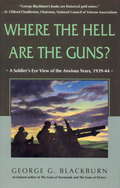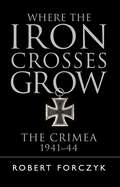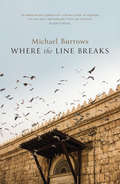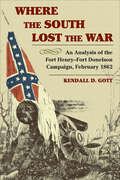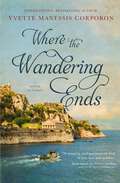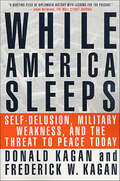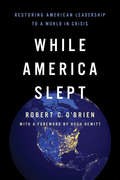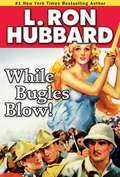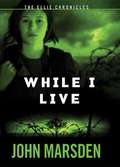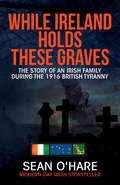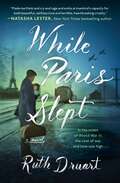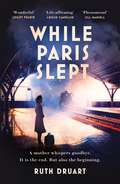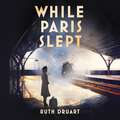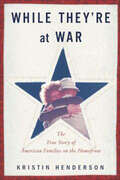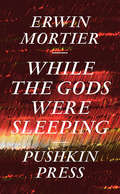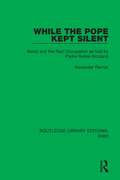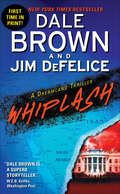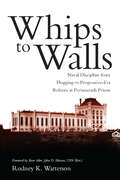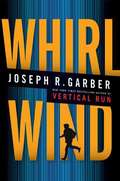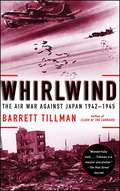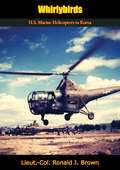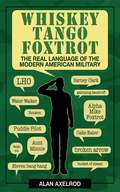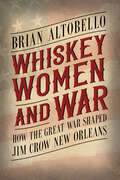- Table View
- List View
Where the Hell Are the Guns?
by George BlackburnInWhere the Hell Are the Guns?, author George Blackburn returns to the early years of the Second World War. This volume – which completes Blackburn’s award-winning trilogy, extending its coverage to the entire war – brings wartime Canada and England to life in captivating, often comic, detail. With the skill of a novelist and the instincts of a seasoned reporter, this gifted storyteller traces the evolution of Canada’s 4th Field Regiment from a motley assortment of ill-equipped recruits to the cream of the Allied artillery, more than ready to distinguish itself in the maelstrom of the battle for Normandy. The Second World War comes to a generation of Canadians one sunny September weekend in 1939. It is a Canada woefully unprepared for conflict, and 4th Field Regiment is rapidly assembled from a grab-bag of volunteers from all walks of life – many of them mavericks and misfits from a depression-ravaged land. The regiment passes its first year in Canada in makeshift accommodation, including hastily converted stables and pigsties in the exhibition grounds of Ottawa and Toronto. For the first few months the soldiers must wear incomplete and moth-eaten uniforms from the Great War, and their early training is conducted using obsolete equipment or no equipment at all. One year into the war, the regiment arrives in England without weapons or vehicles, and a month later, with Britain moving toward the greatest crisis in her history, the regiment is finally equipped with guns – French ones with wooden wheels, dating from 1898. From these inauspicious beginnings, the regiment slowly evolves – with mishap and occasionally mayhem along the way – into a proud and polished regiment, which in 1942 is declared “the best field regiment in Britain. ” By the time the Allied troops land on the beaches in Normandy, the boys of 4th Field are more than ready to go to war.
Where the Iron Crosses Grow
by Robert ForczykNazi and Soviet armies fought over the Crimean Peninsula for three long years using sieges, dozens of amphibious landings, and large scale maneuvers. This definitive English-language work on the savage battle for the Crimea, Where the Iron Crosses Grow sheds new light on this vital aspect of the Eastern Front.The Crimea was one of the crucibles of the war on the Eastern Front, where first a Soviet and then a German army were surrounded, fought desperate battles and were eventually destroyed. The fighting in the region was unusual for the Eastern Front in many ways, in that naval supply, amphibious landings and naval evacuation played major roles, while both sides were also conducting ethnic cleansing as part of their strategy - the Germans eliminating the Jews and the Soviets to purging the region of Tartars.From 1941, when the first Soviets first created the Sevastopol fortified region, the Crimea was a focal point of the war in the East. German forces under the noted commander Manstein conquered the area in 1941-42, which was followed by two years of brutal colonization and occupation before the Soviet counteroffensive in 1944 destroyed the German 17th Army.
Where the Line Breaks
by Michael BurrowsThe Unknown Digger is Australia's answer to famous First World War poets, Brooke, Sassoon. But for decades, his identity has remained a mystery.Matthew Denton – Australian PhD student at University College, London – believes the unknown poet is one of Australia's greatest war heroes: Lieutenant Alan Lewis VC of the 10th Light Horse. Matt is starry-eyed and in love with Emily, a fellow student and assistant to Matt's supervisor, the nattily dressed Professor Alistair Fitzwilliam-Harding. But, as the footnotes to Matt's thesis reveal, not all is fair in love and war.Meanwhile, Alan Lewis, recently engaged to Rose Porter – fights his way across the Middle East as part of the 10th Light Horse, the vision of the life he left behind disappearing, and the question of what makes a poet, a lover and a hero growing more ill-defined with every battle fought.
Where the South Lost the War: An Analysis of the Fort Henry-Fort Donelson Campaign, February 1862
by Kendall D GottThis in-depth Civil War study examines two early Union victories that were instrumental in deciding the conflict&’s ultimate outcome. Some historians argue that the Civil War was decided in February 1862 with the collapse of the Confederate defenses of Forts Henry and Donelson on the Tennessee and Cumberland Rivers. This ambitious offensive opened the whole Tennessee Valley to Union invasion and control, effectively cutting the Confederacy in two. In domino fashion, the Confederates lost Nashville and central and western Tennessee. Memphis eventually fell, and the upper stretch of the Mississippi itself was brought under Union control. During this period, General Ulysses S. Grant came to prominence, putting him in place to lead the Union to victory. Where the South Lost the War is a major contribution to Civil war literature. Shedding light on an overlooked campaign and revising conventional judgments on key players and events, author Kendall D. Gott provides a detailed, incisive, and even controversial study of the operation&’s events.
Where the Wandering Ends: A Novel of Corfu
by Yvette Manessis CorporonThey wondered if they would ever find their way back—back to the village, back to a life of meaning, back to each other.Corfu, 1946—In a poor Greek community, ten-year-old Marco is perhaps the poorest of them all. But it wasn&’t always that way. His grandmother once worked for the royal family where Marco&’s mother played alongside young Prince Phillip himself. Now Greece is on the brink of civil war, and Marco&’s mother still clings to the desperate hope that somehow the royal family will save her own.As the war turns deadlier, Greece&’s Queen Frederica takes a defiant stand against the communists, announcing that she will save her country&’s most innocent by opening children&’s villages. When the communist partisans erect camps of their own, children are ripped from their mothers&’ arms; entire villages are emptied.Young Katerina has been best friends with Marco for as long as she can remember, cementing their bond by stealing scraps from her family&’s table to sneak to him. But when the communists reach their village, loyalties are tested as devastating secrets threaten to emerge. Katerina and Marco are separated just before her family flees on foot. At their final goodbye, Katerina and Marco promise to find their way back to the village, and to each other. This haunting childhood vow launches events that will take decades to unravel.Set among Corfu&’s picturesque lanes, hamlets, and villas where kings, villagers, and saints all walk the same cobblestone paths, Where the Wandering Ends reminds us of the tenacity of those who have lost everything and the enduring power of home.&“[A] magically crafted story combining history and mythology.&” —Heather Morris, New York Times bestselling authorA heart-wrenching yet hopeful story that spans decades: from post-World War II to early 2000sStand-alone novelBook length: approximately 112,000 wordsIncludes discussion questions for book clubs
Where the Wild Cherries Grow: A Novel Of The South Of France
by Laura MadeleineHow far must you run to leave the past behind in order to find love?In Where the Wild Cherries Grow by Laura Madeleine, it is 1919, and the end of the war has not brought peace for Emeline Vane. Lost in grief, she is suddenly alone at the heart of a depleted family. And just as everything seems to be slipping beyond her control, in a moment of desperation, she boards a train and runs away.Her journey leads her to a tiny seaside village in the South of France. Taken in by café owner Maman and her twenty-year-old son, Emeline discovers a world completely new to her: of oranges, olives and wild herbs, the raw, rich tastes of the land. But soon secrets from home begin blowing in on the sea waves.Fifty years later, Bill Perch, a young solicitor on his first case, finds Emeline’s diary, and begins to trace an anguished story of betrayal and love that will send him on a journey to discover the truth.What really happened to Emeline all those years ago?
While America Sleeps: Self-Delusion, Military Weakness, and the Threat to Peace Today
by Donald Kagan Frederick KaganIn While England Slept Winston Churchill revealed in 1938 how the inadequacy of Britain's military forces to cope with worldwide responsibilities in a peaceful but tense era crippled its ability to deter or even adequately prepare for World War II.In While America Sleeps, historians Donald and Frederick Kagan retrace Britain's international and defense policies during the years after World War I leading up to World War II, showing in persuasive detail how self-delusion and an unwillingness to face the inescapable responsibilities on which their security and the peace of the world depended cost the British dearly. The Kagans then turn their attention to America and argue that our nation finds itself in a position similar to that of Britain in the 1920s. For all its emergency interventions the U.S. has not yet accepted its unique responsibility to take the lead in preserving the peace. Years of military cutbacks-the "peace dividend" following the buildup and triumph over Communism of the Reagan years-have weakened our armed forces and left us with too few armed forces to cover too many possible threats. This has caused us to bank everything on high tech "smart" weapons - some of which have not yet been invented and others that we are not acquiring or deploying - as opposed to the long-term commitment of money, fighting men and women, and planning that the deterrence of a major war would require. This failure to shape a policy and to commit the resources needed to maintain peace has cost valuable time in shaping a peaceful world and has placed America's long-term security in danger.The policies of the Bush and Clinton administrations have left us in a position where we cannot avoid war and keep the peace in areas vital to our security. Neither have the post-Cold War policies sent clear signals to would-be aggressors that the U.S. can and will resist them. Tensions in the Middle East, instability in eastern Europe and the former Soviet Union, the nuclear confrontation between India and Pakistan, the development of nuclear weapons and missiles by North Korea, and the menacing threats and actions of China, with its immense population, resentful sense of grievance and years of military buildup, all hint that the current peaceful era will not last forever. Can we make it last as long as possible? Are we prepared to face its collapse? While America Sleeps is a sobering, fascinating work of history that poses a thoughtful challenge to policy-makers and will interest military buffs as well as readers interested in history and international relations.
While America Slept: Restoring American Leadership to a World in Crisis
by Robert C. O'BrienRobert C. O'Brien's collection of essays on U.S. national security and foreign policy, with a forward by Hugh Hewitt, is a wake up call to the American people. The world has become steadily more dangerous under President Obama's "lead from behind" foreign policy. The Obama Administration's foreign policy has emboldened our adversaries and disheartened our allies. Indeed, Obama's nuclear deal with Iran is a 1938 moment. At the same time, the U.S. military has been cut and risks returning to the hollow force days of the 1970s. O'Brien lays out the challenges and provides the common sense "peace through strength" solutions that will allow the next president to make America great again.
While Bugles Blow!
by L. Ron HubbardLaunch into the action with this gritty tale. An American lieutenant in the French Foreign is caught in the middle of an ancient feud between the Jeppas of the Atlas Mountains and the bloodthirsty tribe of Perviz al Bahman.Tension mounts as a gorgeous female Jeppa warrior with golden red hair is drawn into the midst of the conflict and captured by Perviz's tribe. When the American lieutenant later finds her being sold on the slave market, he unthinkingly does what any man must: he rescues her. But while his actions may have saved a beauty, they have also just ignited all-out war. "...one of the best pulp writers of the 1940s."--Library Journal
While I Live (The Ellie Chronicles #1)
by John MarsdenWe were halfway up the spur when we heard it. Homer and Gavin and I, just the three of us. I'd say there were fifteen shots in the first volley, evenly spaced, lasting about twenty-five seconds.
While Ireland Holds These Graves: The Story of an Irish Family During the 1916 British Tyranny
by Sean O’HareWhile Ireland Holds These Graves, The Story of an Irish Family During the 1916 British Tyranny, is the fateful story of a Dublin working-class family caught up in the Easter Rising of 1916. It is also the story of some leaders, especially women of that uprising, and of the spirits of past heroes who came to their aid. Finally, it is a story of Irish people who, generation after generation, and even after their martyrdom, rose up against British tyranny in Ireland. While Ireland Holds These Graves will make you proud of your Irish heritage.
While Paris Slept: A Novel
by Ruth DruartOne woman must make the hardest decision of her life in this unforgettably moving story of resistance and faith during one of the darkest times in history.Santa Cruz, 1953. Jean-Luc is a man on the run from his past. The scar on his face is a small price to pay for surviving the horrors of Nazi occupation in France. Now, he has a new life in California, a family. He never expected the past to come knocking on his door.Paris, 1944. A young Jewish woman's past is torn apart in a heartbeat. Herded onto a train bound for Auschwitz, in an act of desperation she entrusts her most precious possession to a stranger. All she has left now is hope. On a darkened platform, two destinies become intertwined, and the choices each person makes will change the future in ways neither could have imagined. Told from alternating perspectives, While Paris Slept reflects on the power of love, resilience, and courage when all seems lost. Exploring the strength of family ties, and what it really means to love someone unconditionally, this debut novel will capture your heart.
While Paris Slept: A Novel
by Ruth DruartOn a platform in occupied Paris, a mother whispers goodbye.It is the end. But also the beginning...'What a book... Emotional and heartrending...absolutely phenomenal. I was on tenterhooks throughout. A wonderful achievement' JILL MANSELL*** THE INTERNATIONAL BESTSELLER ***'I absolutely loved it. An ingenious plot, wonderful believable characters and it moved me to tears. A fabulous read' LESLEY PEARSE'An amazing story of love, resilience and the human spirit' TRACY REES'You'll have your heart in your mouth and tears on your cheeks as it reaches its rich, life-affirming conclusion... Had me completely and utterly enraptured' LOUISE CANDLISH'Brace yourself for a brilliant read. This will tug at your heartstrings' BEST'Made me think and cry and rage and smile at mankind's capacity for both terrible, heartbreaking cruelty and beautiful, selfless love' NATASHA LESTER'A heartbreaking debut' JANET SKESLIEN CHARLES, AUTHOR OF THE PARIS LIBRARY Paris 1944 A young woman's future is torn away in a heartbeat. Herded on to a train bound for Auschwitz, in an act of desperation she entrusts her most precious possession to a stranger. All she has left now is hope. Santa Cruz 1953 Jean-Luc thought he had left it all behind. The scar on his face a small price to pay for surviving the horrors of Nazi Occupation. Now, he has a new life in California, a family. He never expected the past to come knocking on his door. On a darkened platform, two destinies become entangled. Their choice will change the future in ways neither could have imagined...Beautiful. Powerful. Unforgettable. A stunning portrait of the brutality of war and the tenacity of love. In the tradition of Virginia Baily's Early One Morning, M. L. Stedman's The Light Between Oceans and Heather Morris's The Tattooist of Auschwitz. 'Historical fiction fans, rejoice! A new voice has entered the arena and she's one to watch. Perfectly paced and plotted, and evocatively written' Woman & Home'A powerful and poignant debut from a brilliant and bold new novelist' Imogen Kealey, author of Liberation JUST SOME OF THE FIVE-STAR REAL READER REVIEWS FOR WHILE PARIS SLEPT... 'I loved this novel, I'm still crying. A truly beautiful book that captures the meaning of parental love in all its forms. I highly recommend this book to all my book groups. *****' 'A heartbreaking and emotional read based around WW2. Absolutely fantastic. I have no hesitation in giving this 5 stars *****' 'This book was beautiful - a book on love and courage demonstrated in different ways, showing that there is no one way to love or be brave. I was unable to stop reading *****' 'I loved While Paris Slept. I finished the novel with tears in my eyes. An uplifting novel and will be great for book clubs' *****' 'Wow, what an emotional rollercoaster of a read. The characters so believable. Highly recommend'
While Paris Slept: A mother faces a heartbreaking choice in this bestselling story of love and courage in World War 2
by Ruth DruartOn a platform in Paris before dawn, a woman whispers goodbye.It is the end.But also the beginning.In the tradition of Virginia Bailey's Early One Morning by Virginia Bailey and M. L. Stedman's The Light Between Oceans, a beautiful, powerful and unforgettable portrait of the brutality of war and the tenacity of love. 1953. Jean-Luc is a man on the run from his past. The scar on his face a small price to pay for surviving the horrors of Nazi occupation. Now, he has a new life in California, a family. He never expected the past to come knocking on his door.Paris 1944. A young Jewish woman's past is torn away in a heartbeat. Herded on to a train bound for Auschwitz, in an act of desperation she entrusts her most precious possession to a stranger. All she has left now is hope.On a darkened platform two destinies become entangled. Their choice will change the future in ways neither could have imagined.Beginning on an ordinary day and ending on an extraordinary one, WHILE PARIS SLEPT will move you and remind you of the remarkable wire of resilience threaded through the human soul.
While They're At War: The True Story of American Families on the Homefront
by Kristin HendersonMany Americans will never experience the gut-wrenching act of sending a loved one off to war, or the joy and stress of welcoming him or her home. Still less known to most of us are the anxiety-ridden moments between these two scenes, the day-to-day reality of life in a military family when a loved one is deployed in a combat zone. While They're at War takes us inside hearts and homes to illuminate the unseen aspects of this critical American story. We meet two very different women, Marissa Bootes and Beth Pratt, both newlyweds experiencing life alone at Fort Bragg, North Carolina, while their husbands are fighting in Iraq. Through the extraordinary stories of these and other military spouses, Kristin Henderson reveals the overwhelming effects of separation -- from fears of death to worries about financial stability and marital fidelity. She also explores the official and unofficial support systems that strain to help homefront families endure some of their greatest challenges.
While the Gods Were Sleeping
by Paul Vincent Erwin MortierWhile the Gods Were Sleeping is a novel about the magnitude and impact of the First World War, the recollections of which are recorded in the notebooks of the elderly Helena. The young Helena is sent to her uncle's country house before the war, and from here she witnesses scenes of indescribable horror. But it is also where she meets Matthew again, a British Army photographer who she goes on to marry. This is a story not about spectacular events; rather, Mortier is concerned with writing about war, history and the past with great empathy and engagement, and with a mixture of melancholy, qualification and resignation.
While the Pope Kept Silent: Assisi and the Nazi Occupation as told by Padre Rufino Niccacci (Routledge Library Editions: WW2 #44)
by Alexander RamatiThis book, first published in 1978, tells one of the great stories of World War 2. Alexander Ramati, one of the first war correspondents to enter Assisi after the Germans had been driven out, details Father Rufino’s story of conducting ‘Christian pilgrims’ from Assisi to the port of Genoa, and helping them find documentation and accommodation in the city under the noses of the Germans. These people were, of course, Jewish refugees from Nazi persecution, saved from death by a priest and his colleagues.
Whiplash: Whiplash (Dreamland Thrillers #11)
by Dale Brown Jim DeFeliceA high-tech covert strike force takes aim at a nuclear armed extremist in the New York Times–bestselling co-author’s military techno-thriller.The world is watching as the U.S. and Iran agree to lay down their swords. But one man hiding in Africa holds the power to obliterate the peace. Shrouded by the bloody madness of tribal warfare, Iranian functionary-turned-fanatic Bani Aberhadji has created a vast network dedicated to unleashing a nuclear nightmare. Only by chance are American agents now learning of its existence . . . and it may already be too late.The covert strike force Whiplash is armed and ready to spring into action. Born from the ashes of Dreamland, it possesses the most cutting-edge military technology on Earth. But Aberhadji’s web of death is wide and well concealed . . . and the doomsday clock is ticking.
Whips to Walls
by Rodney K. WattersonDuring World War I, the United States Navy conducted at the Portsmouth, NH Naval Prison what many penal scholars consider the most ambitious experiment in the history of progressive prison reform. Cell doors remained opened, prisoners governed themselves and thousands of rehabilitated prisoners were returned to the fleet. This humanitarian experiment at Portsmouth prison stood in stark contrast to the inhumane flogging of prisoners that had dominated naval discipline until 1850. The Navy's journey between these two extremes in naval discipline included the development of a much needed naval prison system.When congress abolished flogging in 1850, the Navy was left with few punishment options. Flogging had been a harsh, but very effective and efficient discipline tool. Various conditions of confinement appeared to be the most logical substitute for flogging, but the Navy had few cells ashore and confinement onboard a nineteenth century man-of-war sailing vessel was impractical. Onboard space was limited and all hands were needed to sail and fight the ship. Subsequent naval directives that merely suggested punishments for various offenses led to inconsistent interpretation and application of punishments throughout the fleet. At the same time, courts-martial prisoners were sporadically confined in various marine barracks, navy yard jails, naval station guard houses, prison ships and state prisons. The Navy's discipline system was in disarray. A naval prison system was needed to consolidate and provide for consistent treatment of prisoners. The Navy's efforts to gain congressional approval for a prison in the 1870s were unsuccessful. In the late 1880s, the Navy took matters into its own hands and established a prison system centered on makeshift prisons at the Boston and Mare Island Navy Yards. An ever-increasing need for cells, primarily driven by high desertion rates, eventually resulted in the construction of the Navy's first real prison at Portsmouth, which opened in 1908. A consolidation of naval prisons in 1914 left Portsmouth as the dominant centerpiece of the naval prison system.At this point Secretary of the Navy Josephus Daniels and Assistant Secretary of the Navy Franklin Delano Roosevelt chose the most celebrated prison reformer of his era, Thomas Mott Osborne, to assume command of the Portsmouth prison. His reforms at Portsmouth went well until Vice Adm. William S. Sims and others became convinced that too many trouble makers were being returned to the fleet. Under mounting pressure from senior naval officers, FDR personally led an on-site investigation of conditions at Portsmouth prison, which included charges of gross mismanagement and rampant homosexual activity. Although exonerated by FDR's team, Osborne resigned from the Navy shortly after the investigation. Osborne's reform initiatives were quickly reversed as the Navy returned to a harsher punishment system more inclined toward deterrence than humanitarian considerations and prisoner comforts.
Whirlwind
by Joseph R. Garber Guerin BarryFormer CIA agent Charlie McKenzie is assigned to recover Whirlwind, a secret government weapon that has been stolen by a beautiful Russian spy named Irina. Charlie hasn't forgiven the government for falsely imprisoning him years before, so he decides to protect Irina instead. The two team up against both a corrupt National Security advisor and a murderous South African mercenary.
Whirlwind: A Novel of the Iranian Revolution
by James ClavellWhirlwind is the story of three weeks in Tehran in February 1979: three weeks of fanaticism, passion, self-sacrifice and heartbreak. Caught between the revolutionaries and the forces of international intrigue is a team of professional pilots. They are ordered to flee to safety with their helicopters. Two of them, both Europeans, have Iranian wives whom they love beyond safety and politics.
Whirlwind: The Air War Against Japan, 1942-1945
by Barrett TillmanWHIRLWIND is the first book to tell the complete, awe-inspiring story of the Allied air war against Japan--the most important strategic bombing campaign in history. From the audacious Doolittle raid in 1942 to the atomic bombing of Hiroshima and Nagasaki in 1945, award-winning historian Barrett Tillman recounts the saga from the perspectives of American and British aircrews who flew unprecedented missions over thousands of miles of ocean, as well as of the generals and admirals who commanded them. Whether describing the experiences of bomber crews based in China or the Marianas, fighter pilots on Iwo Jima, or carrier aviators at sea, Tillman provides vivid details of the lives of the fliers and their support personnel. Whirlwind takes readers into the cockpits and gun turrets of the mighty B-29 Superfortress, the largest bomber built up to that time. Tillman dramatically re-creates the sweep of wartime emotions that crews endured on fifteen-hour missions, grappling with the extreme tedium of cramped spaces and with adrenaline spikes in flak-studded skies, knowing that a bailout would put them at the mercy of a merciless enemy or an unforgiving sea. A major character is the controversial and brilliant General Curtis LeMay, who rewrote strategic bombing tactics. His command's fire-bombing missions incinerated fully half of Tokyo and many other cities, crippling Japan's industry while still failing to force surrender. Whirlwind examines the immense logistics and construction efforts necessary to support Superfortresses in Asia and the Mariana Islands, as well as the tireless efforts of engineers to build huge air bases from scratch. It also describes the unheralded missions that American bomber crews flew from the Aleutian Islands to Japan's northernmost Kuril Islands.Never has the Japanese side of the story been so thoroughly examined. If Washington, D.C., represented a "second front" in Army-Navy rivalry, the situation in Tokyo approached a full-contact sport. Tillman's description of Japan's willfully inadequate approach to civil defense is eye-opening. Similarly, he examines the mind-set in Tokyo's war cabinet, which ignored the atomic destruction of Hiroshima and Nagasaki, requiring the emperor's personal intervention to avert a ghastly Allied invasion. Tillman shows how, despite the Allies' ultimate success, mistakes and shortsighted policies made victory more costly in lives and effort. He faults the lack of a unified command for allowing the Army Air Forces and the Navy to pursue parochial goals at the expense of the larger mission, and he questions the premature commitment of the enormously sophisticated B-29 to the most primitive theater in India and China. Whirlwind is one of the last histories of World War II written with the contribution of men who fought in it. With unexcelled macro- and microperspectives, Whirlwind is destined to become a standard reference on the war, on multiservice operations, and on the human capacity for individual heroism and national folly.
Whirlybirds: U.S. Marine Helicopters in Korea
by Lieut.-Col. Ronald J. BrownOn 25 June 1950, Communist North Korea unexpectedly invaded its southern neighbor, the American-backed Republic of Korea (ROK). The poorly equipped ROK Army was no match for the well prepared North Korean People’s Army (NKPA) whose armored spearheads quickly thrust across the 38th Parallel. The stunned world helplessly looked on as the outnumbered and outgunned South Koreans were quickly routed. With the fall of the capital city of Seoul imminent, President Harry S. Truman ordered General of the Army Douglas MacArthur, C-in-C, Far East, in Tokyo, to immediately pull all American nationals in South Korea out of harm’s way. On 27 July, an American combat air patrol protecting Kimpo Airfield near the South Korean capital actively engaged menacing North Korean planes and promptly downed three of the five Soviet-built Yak fighters. Soon thereafter American military forces operating under the auspices of the United Nations Command (UNC) were committed to thwart a Communist takeover of South Korea. Thus, only four years and nine months after V-J Day marked the end of WWII, the United States was once again involved in a shooting war in Asia….The United Nations issued a worldwide call to arms to halt Communist aggression in Korea, and America’s armed forces began to mobilize. Marines were quick to respond. Within three weeks a hastily formed provisional Marine brigade departed California and headed for the embattled Far East. Among the aviation units on board the U.S. Navy task force steaming west was a helicopter detachment, the first rotary-wing aviation unit specifically formed for combat operations in the history of the Marine Corps. Although few realized it at the time, this small band of dedicated men and their primitive flying machines were about to radically change the face of military aviation. Arguably, the actions of these helicopter pilots in Korea made U.S. Marines the progenitors of vertical envelopment operations, as we know them today.
Whiskey Tango Foxtrot: The Real Language of the Modern American Military
by Alan AxelrodFew areas of human endeavor have produced more--or more colorful--terms than has the military. Soldiers, sailors, marines, and airmen have over centuries come up with words, phrases, and acronyms to express everything from raw emotion to complex technology. The military is both a distinctive way of life and a community, and a command of its slang is essential to admission to full membership within the group.Most military slang is almost always familiar only to the troops. Mating mosquitoes, for example, refers to the two-chevron insignia of the Army corporal. Gadget describes an enlisted man or woman who is temporarily promoted to a position of increased responsibility to fill an urgent need, while a panty raid is a foray into enemy territory for the purpose of gathering evidence of adversary activity.Among the less delicate entries are the day the eagle shits, or payday, and skimmer puke, a submariner's term for any surface ship sailor. (And then there's the book's title, the acronym for What The F-ck).Many elements of military vocabulary have become part of our national speech: John Wayne, boondocks, attaboy, and hot dog. But whether the words and phrases are the exclusive property of our fighting men and women or are also in general use, the "real" language of the modern military set forth in this lively book embodies a uniquely American attitude and an exuberantly colloquial, unwaveringly honest, and enduringly American grace under pressure.
Whiskey, Women, and War: How the Great War Shaped Jim Crow New Orleans
by Brian AltobelloAs the US entered World War I in 1917, a burst of patriotism in New Orleans collided with civil liberties. The city, due to its French heritage, shared a strong cultural tie to the Allies, and French speakers from Louisiana provided vital technical assistance to the US military during the war effort. Meanwhile, citizens of German heritage were harassed by unscrupulous, ill-trained volunteers of the American Protective League, ordained by the Justice Department to shield America from enemies within. As a major port, the wartime mobilization dramatically reshaped the cultural landscape of the city in ways that altered the national culture, especially as jazz musicians spread outward from the vice districts.Whiskey, Women, and War: How the Great War Shaped Jim Crow New Orleans surveys the various ways the city confronted the demands of World War I under the supervision of a dynamic political machine boss. Author Brian Altobello analyzes the mobilization of the local population in terms of enlistments and war bond sales and addresses the anti-vice crusade meant to safeguard the American war effort, giving attention to Prohibition and the closure of the red-light district known as Storyville. He studies the political fistfight over women’s suffrage, as New Orleans’s Gordon sisters demanded the vote predicated on the preservation of white supremacy. Finally, he examines race relations in the city, as African Americans were integrated into the city’s war effort and cultural landscape even as Jim Crow was firmly established. Ultimately, the volume brings to life this history of a city that endured World War I in its own singular style.
